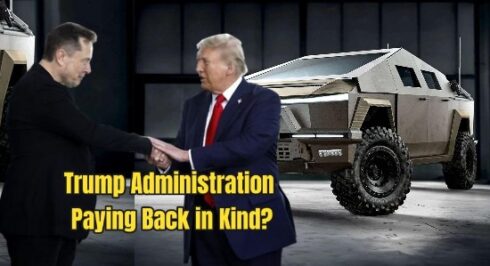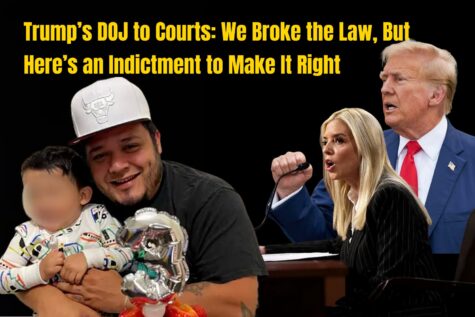As the Department of Government Efficiency (DOGE), led by Elon Musk, enforces budget cuts affecting vulnerable populations, controversy has erupted over a $400 million federal contract that could benefit Musk’s own company, Armored Tesla. The planned procurement, first revealed in a State Department document for fiscal year 2025, has drawn sharp criticism, particularly because it coincides with DOGE’s crackdown on senior financial support, which previously allocated $65 per day to elderly Americans.
While Musk has championed government spending cuts under his leadership at DOGE, critics argue that the administration’s priorities reflect hypocrisy. Representative Greg Casar pointed out that Musk’s companies receive approximately $8 million in federal funds daily, contradicting claims of financial restraint. “It’s a glaring inconsistency,” Casar stated. “We are slashing essential programs while funneling taxpayer dollars into a billionaire’s ventures to buy Armored Tesla.”
State Department Modifies Document in Armored Tesla Purchases After Public Scrutiny
The controversy intensified after the State Department’s 2025 procurement forecast initially listed a $400 million contract for “Armored Tesla (Production Units).” Following media scrutiny, the document was quietly revised at 9:12 p.m. on Wednesday night to read “Armored Electric Vehicles,” removing direct reference to Tesla. This change has fueled suspicions of an attempt to obscure Musk’s involvement.
Armored Tesla’s Cybertruck, with its stainless steel exterior and militaristic design, has been suggested as a likely candidate for the contract. The model, which starts at around $82,000, has faced consumer complaints about rust, defective accelerator pedals, and safety hazards. Despite these issues, its selection for government procurement raises further questions about favoritism.
In response to an MSNBC segment highlighting the contract, Musk reacted defensively, writing on X, “Hey @Maddow, why the lie?” However, neither Musk nor the State Department has formally addressed concerns about the contract revision.
Ethical Questions Surround Musk’s Dual Role in Government and Business
Musk’s leadership at DOGE places him in a unique—and controversial—position. Tasked with eliminating government waste, his direct influence over procurement decisions involving Tesla has raised serious ethical concerns. With six companies under his control, including Tesla and SpaceX, Musk’s federal entanglements have drawn scrutiny from ethics experts, who warn of potential conflicts of interest. As the federal government deal to buy these Armored Tesla is taking shape, he emphasized that Musk’s involvement in multiple federal agencies creates ample opportunity for undue influence.
Furthermore, SpaceX, another Musk-led company, has received billions in federal contracts, including funding for NASA missions. Critics argue that Musk’s outsized presence in government spending decisions makes genuine accountability difficult, as those tasked with oversight may hesitate to challenge his influence.
Billionaire-Backed Policies Leave Vulnerable Citizens Behind
The uproar over the Armored Tesla contract also highlights broader concerns about the Trump administration’s fiscal priorities. While billions continue to flow into Musk’s enterprises, essential programs like the $65 daily support for seniors are being slashed in the name of financial responsibility. Advocates for elder care have condemned the cuts, stating they will disproportionately harm low-income seniors who rely on these funds for basic needs.
“This administration claims to be cutting waste, yet it’s redirecting money into the hands of the wealthiest,” said Anna Garcia, a spokesperson for the National Coalition for Senior Welfare. “Eliminating support for struggling seniors while handing a blank check to Tesla is a disgrace.”
As the debate intensifies, watchdog groups and lawmakers are calling for greater transparency in federal procurement processes. With Musk’s increasing influence over government spending, questions remain about whether financial decisions are being made in the best interests of taxpayers—or a billionaire CEO.














